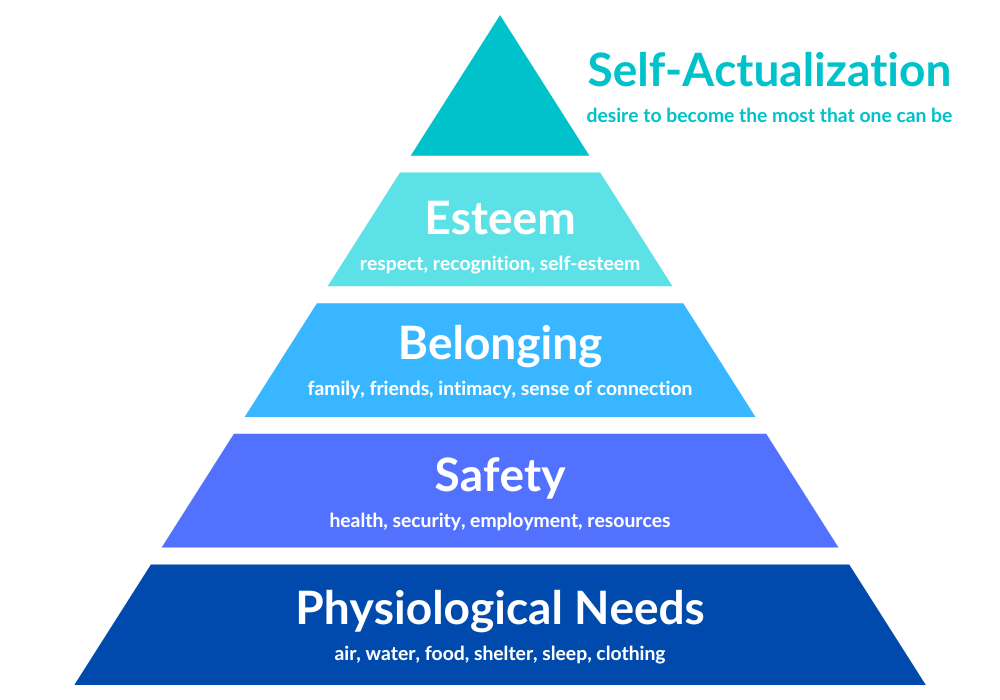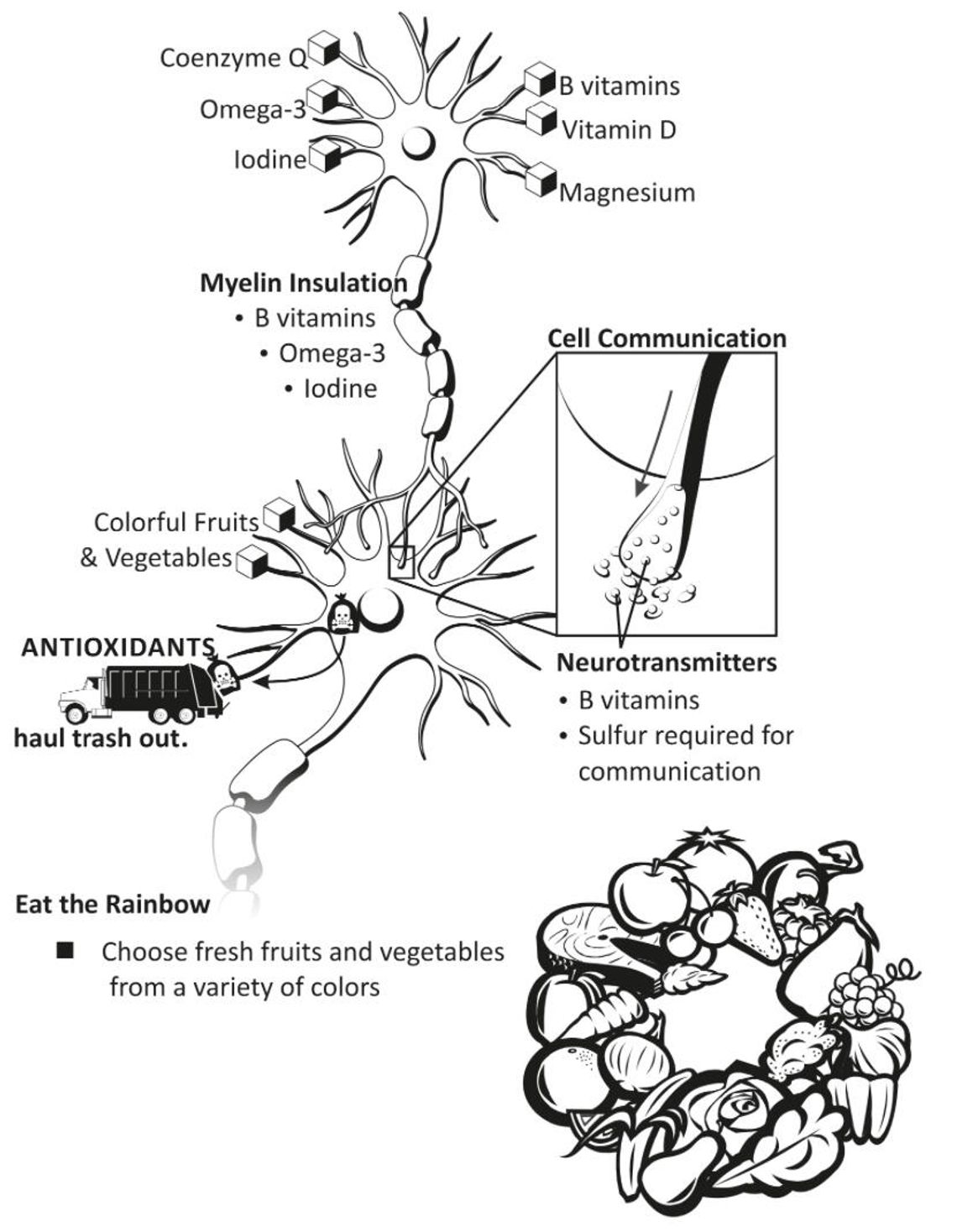BY HANNAH BROOKS
Multimedia Journalist
We’re college students. Most of us have a million assignments, meetings, due dates and classes on top of jobs, extracurricular activities, families and more.
If we even find time to think about our physical well being, we might try to hit the Tarleton Recreation Center for a quick workout. Maybe we’ll even remember to bring a water bottle with us throughout the day.
But often it seems where we sacrifice the effort is what we fuel our bodies with. We eat what we can find. We eat what we can afford.
As we try to maintain momentum rolling into another semester, it is crucial to be mindful of what you eat and what you don't – both making a massive impact on your physical and mental well being.
If you don't believe that what you eat affects you much, then let this be your introduction to a few ideas.
The pyramid pictured is called Maslow’s hierarchy of needs. This puts in picture what needs must be met in order for a human to flourish to another level of accomplishment. At the very base of it all are physiological needs like sleep, nourishment (note: not just food) and shelter.

We’ve all lived this concept even if we’re not aware of it.
Perhaps you’ve experienced eating poorly and not being able to think as clearly. Or perhaps you’ve been hungry before, leading you to not be able to focus on school work or even become angry.
Maybe you haven’t gotten enough sleep which causes you to fall asleep in class (you will prioritize sleep over education if your body demands it) or struggle in academic and social situations.
All this to say, not much can be effectively accomplished without paying mind to our baseline needs, needs like nutrition.
Now that we’ve established the need aspect, let’s discuss how your gut health determines your brain function and wellbeing.
The gut and the brain communicate physically through the vagus nerve, one of the longest nerves in the human body. However, other messages are sent via microbial metabolites (small molecules).
These molecules include proteins, fats, neurotransmitters and organic acids which arrive in the brain through the bloodstream.
A lab study by Dr. Manzmanian published in Nature suggests that “...microbial metabolites influence neuropsychiatric health, and…probiotic(s) may be used to control these metabolites for mental health outcomes.”
In this same lab, it was concluded that obtaining the correct amount and type of microbes from the fiber we eat has great potential to “reduce anxious behaviors, with implications for human anxiety or other mood conditions.”
At the most basic level, we are made of cells that are constantly in action and cellular fuel comes from the foods you eat.
When we starve them of nutrients they need to function, we open the door to obesity, autoimmune disease, disrupted hormone production and disrupted neurotransmitter function, to name a notable few.
Read in simple English: You’ll feel constant fatigue, low mood and difficulty thinking critically.
This could be a problem for a college student.
Think of it like this: If you put bleach into the gas tank of a car, it won’t work right. If you are missing half the tools in an “assembly required” piece of furniture, it’s not going to be built correctly.
The same goes for us.
If we aren't getting our needed amount of fiber, omega-3s or protein, we will not function the way we should either.
What can we eat to satisfy these needs?
According to the Centers for Disease Control and Prevention (CDC), adults should consume 1.5-2 cups of colorful fruits daily and a 2-3 cup amount of mixed, vibrantly colored vegetables. This will provide both fiber and antioxidants.
Proteins consumed should be at the very least, minimally processed (sorry, lunch meat lovers) and low in saturated fats.
To achieve optimal nutrient content levels, consider buying grass fed or local meats. You can find fresh and very affordable meat at the Purple Tractor in Stephenville.
There are many types of fats, but the ones to emphasize in your diet are omega-3s - specifically, alpha-linolenic acid (ALA), docosahexaenoic acid (DHA) and eicosapentaenoic acid (EPA).
The best sources of the fats listed above are flaxseed oil/seed (ALA), chia seeds (ALA), menhaden fish oil (EPA) and salmon fish/oil (EPA and DHA).
Interestingly, docosahexaenoic acid constitutes 9-12% of our brains total weight, according to the National Library of Medicine.
There are many other excellent sources of fatty acids that should be explored, but the mentioned above are the highest concentrates per teaspoon or ounce.
Treat your next visit to the dining hall or the grocery store like a scavenger hunt, and look for foods that keep your body well, your cells happy and your mind functioning at optimal levels.
You can find more information on nutrition and gut health on Seed.com, Nature.com and the National Library of Medicine.
If you need more advanced assistance, consider finding a registered dietitian nutritionist.
.png)

Comment
Comments